Menu
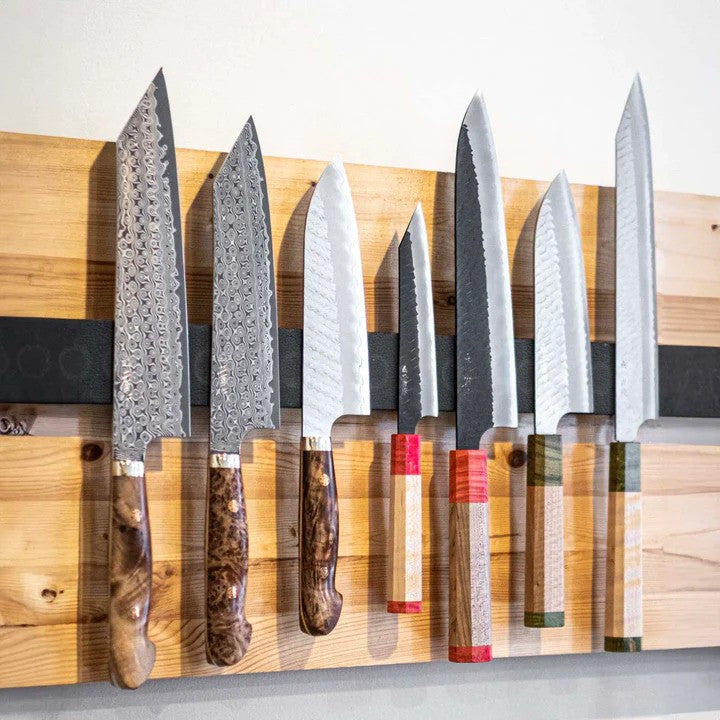
THE BLACKSMITH
NIGARA HAMONO
- Choosing a selection results in a full page refresh.
















| Blade Length | 245 mm |
| Total Length | 400 mm |
| Steel | Aogami (Blue Super) |
| Handle | Maple |
| Ferrule | Stabilized Maple (Green) |
| Rockwell | 64 |
| Height Spine to heel | 39 mm |
| Width at Spine | 2.2 mm |
| Weight | 160 grams |
Nigara Hamono is located in Hirosaki which is a city at the very northen tip of the main island of Honshu. Their family has a 350 year old history of making knives and swords and more recently has expanded into structural steel beams for use in construction. Tsuyoshi Yoshizawa stands as the 8th generation smith in the lineage of blacksmiths at Nigara Hamono and creates knives with his yonger brother and two other craftsman.
*These knives are extremely thin behind the edge, this gives them an unbelievable cutting feel but makes them more delicate than even other Japanese knives. Twisting and torquing the knife on the board or in an ingredient will certainly cause chipping. Make sure to use only up and down, forward and back motions with the knife.
Follow these care recommendations for your Japanese knives to protect the edge and keep them sharp as long as possible:
All products are shipped within 24 hours. We offer same day shipping for products ordered by 12pm. Please allow 4-7 business days for your shipment to arrive with standard shipping. Expedited shipping options are also available at checkout.
We offer free shipping on orders within Canada over $150 CAD and free shipping on orders to the US over $200 USD.
Curbside pick-up is available at both our Hamilton and Etobicoke locations.
To make sure our customers are always satisfied, we offer full refunds on products for 14 days after receiving them. See our full return policy for details.
More questions? Check out our shipping policy, our return policy, or reach out to us directly.

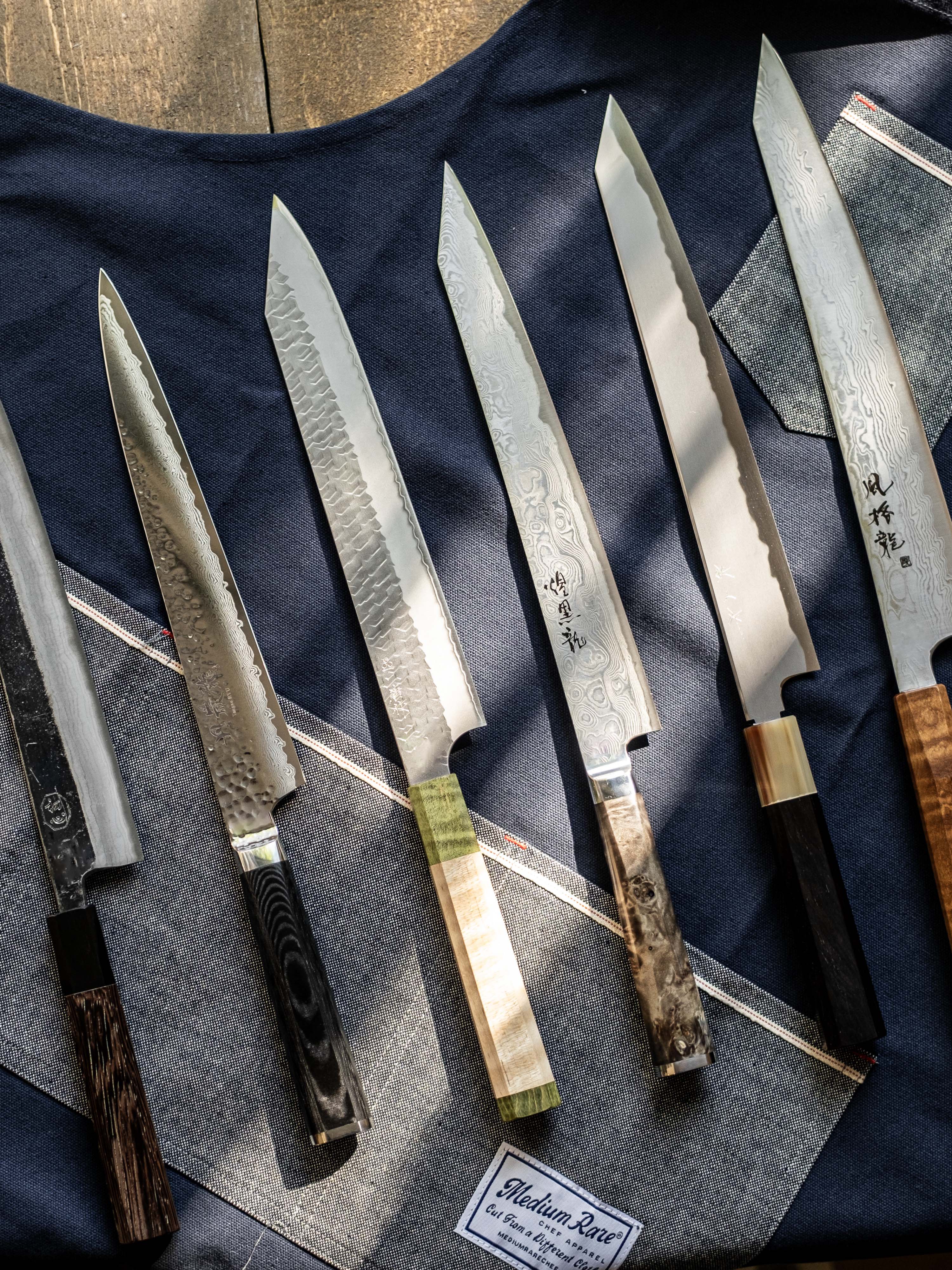
The word "Sujihiki" translates to "flesh slicer". The long, slender blade allows the user to make long drawing strokes, which makes it incredibly adept at slicing and reduces the amount of sawing needed to get through ingredients. They are most commonly in the 240 mm (10 inches) to 300 mm (12 inches) range. The Sujihiki has a very specific use case, so if you're looking for a knife that is capable of slicing and chopping vegetables, we would recommend a Gyuto or Kiritsuke.
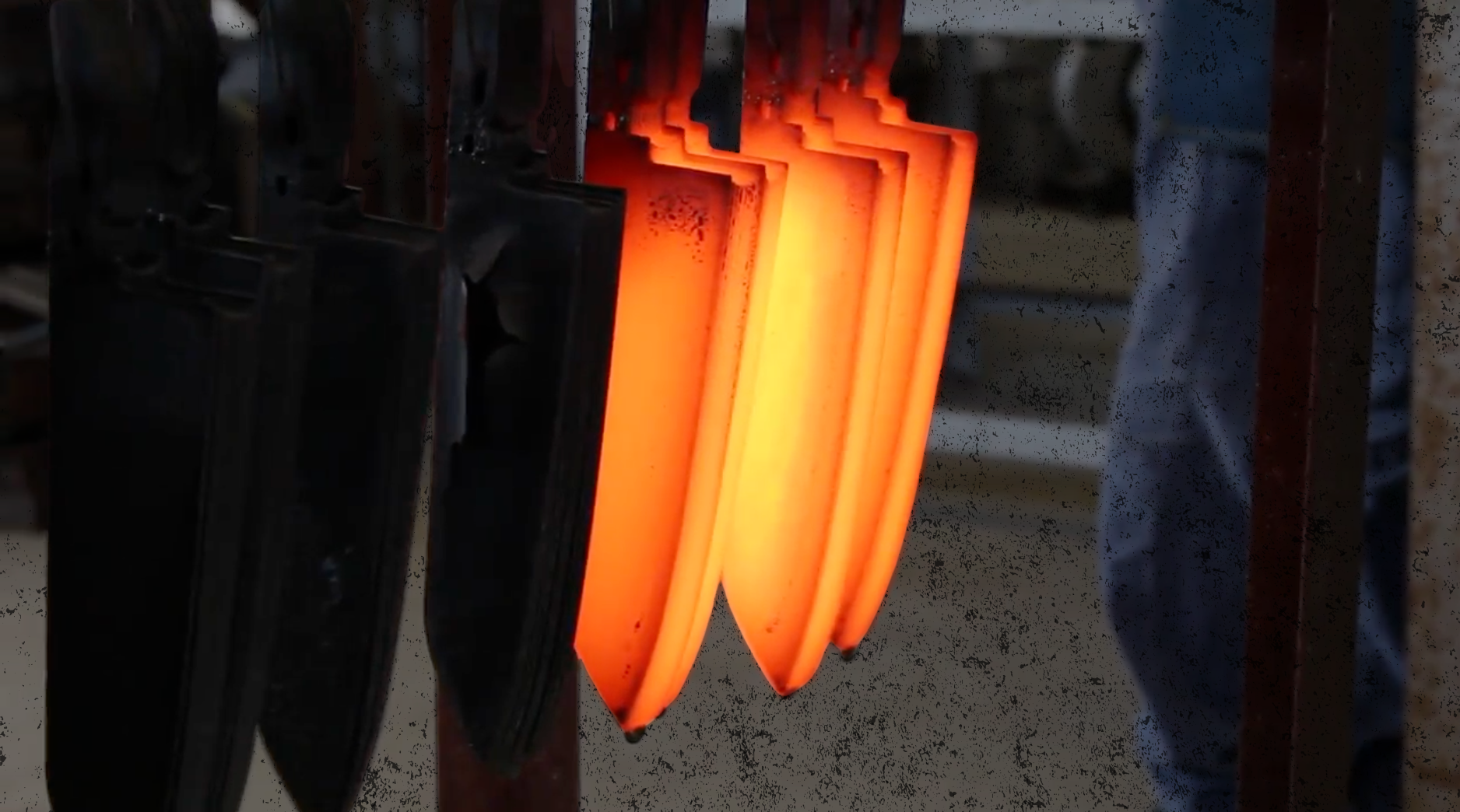
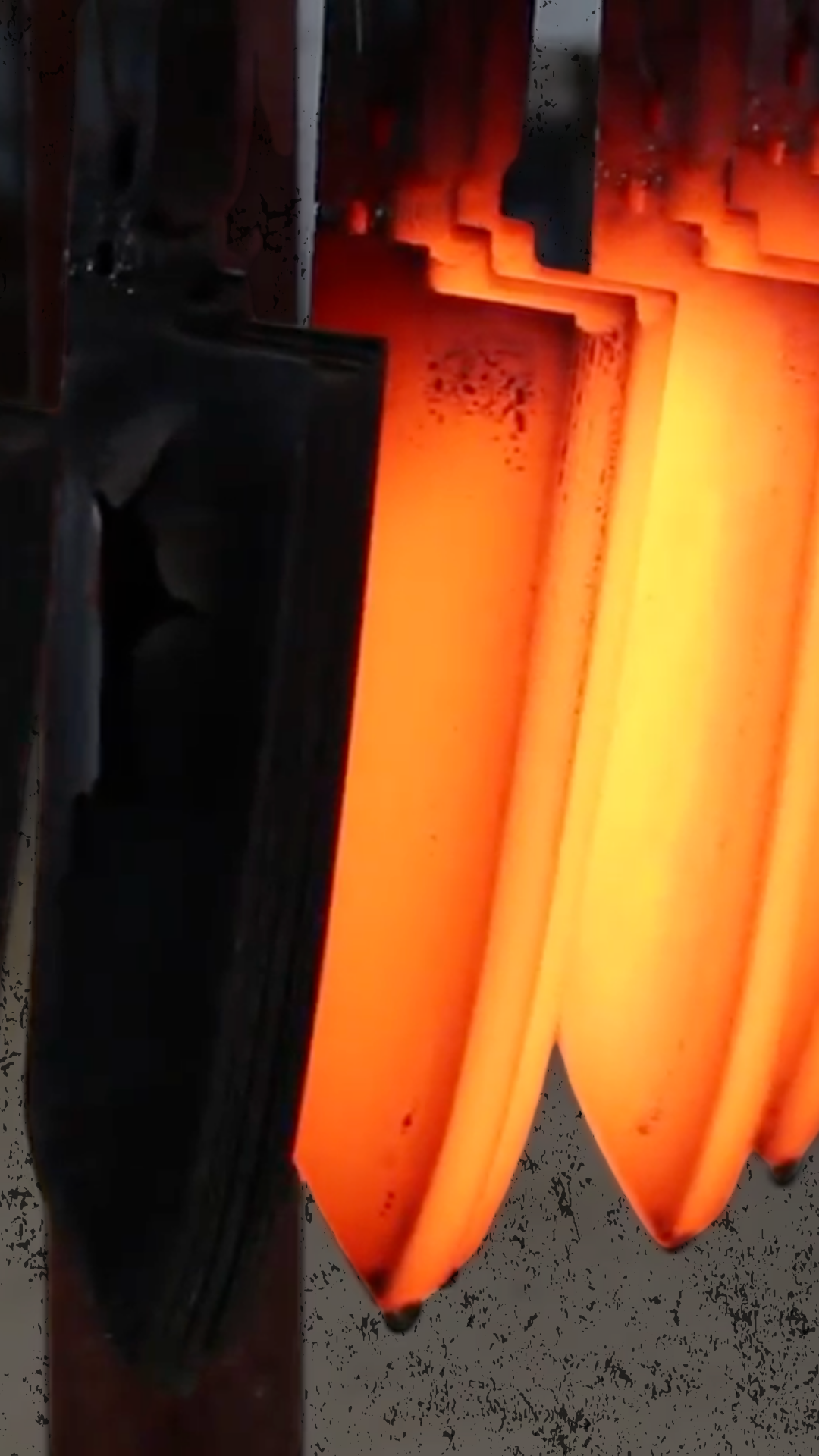
AKA Blue Super: This steel is considered by many to be the best carbon steel available for knife making. Containing elevated levels of carbon, chromium and tungsten and with the addition of molybdenum it is easy to sharpen, gets super sharp, is less reactive to rust, and is less brittle (compared to other carbon steels).
Chemical Composition:
C 1.4-1.5% | Cr 0.3-0.5% | W 2.0-2.5% | Mo 0.3-0.5% | V 0.5%
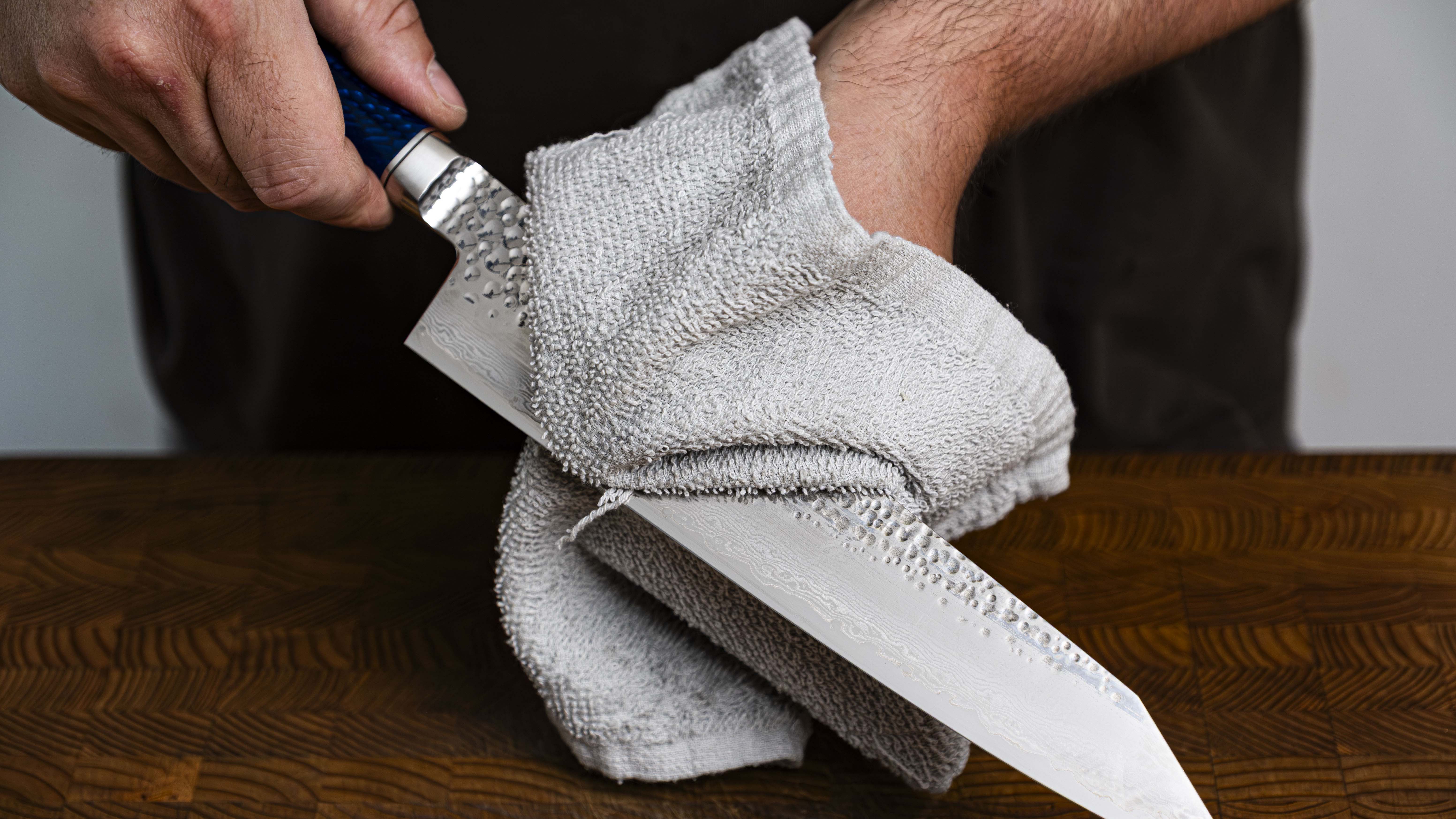
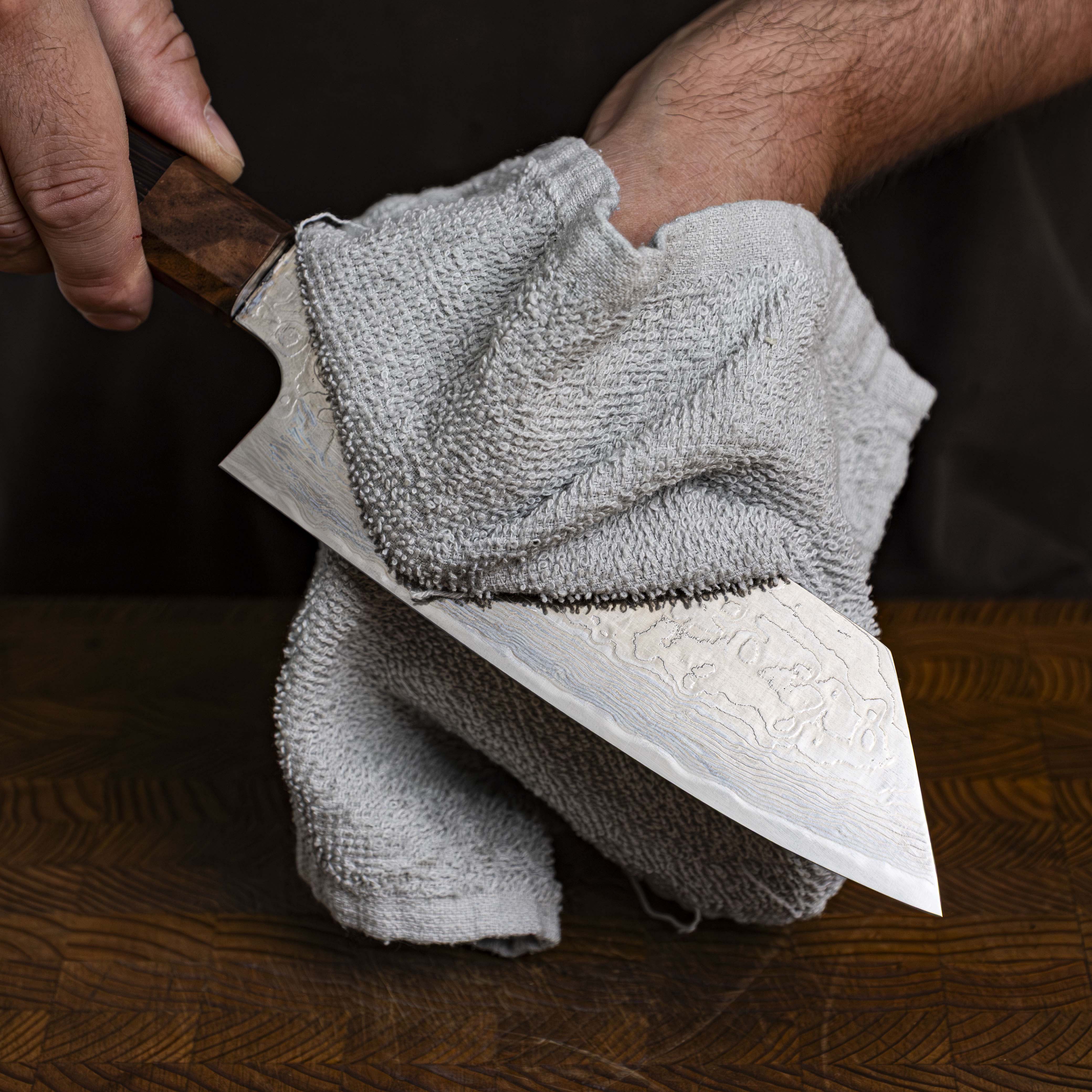
LOW MAINTENANCE
Stainless steel Japanese knives are made in a process called “Sanmai” or “Forge welding” where two softer layers of stainless steel are laminated around a harder core layer of stainless steel. All three of these layers are rust resistant and therefore are not susceptible to rust or discoloration. The softer outer layers of steel are used to make the knife more durable and flexible while the harder core layer is used to provide better edge retention to the blade.

Nigara Hamono is located in Hirosaki city, Aomori Prefecture, on the north west tip of the main island of Honshu, Japan. Their family has been making knives and swords for more than 350 years and more recently has expanded into structural steel beams for use in construction. Tsuyoshi Yoshizawa stands as the 8th generation smith in the lineage of blacksmiths at Nigara Hamono and creates knives with his younger brother and two other craftsmen.
